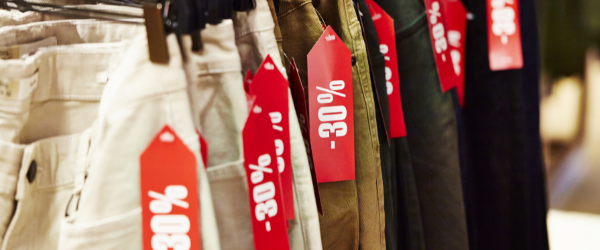
15 März Fast fashion is not a model for the future – sustainability must remain the goal
MEP Manuela Ripa (ÖDP) has called for more sustainability in the fashion industry. In this context, the ecologist, together with other members of the European Parliament, has sent several letters to the European Commission calling for a more sustainable textile industry – including a longer life cycle, also for synthetic fibres. They advocate for clear rules and ambitious targets for sustainable fabrics in the textile industry. The parliamentarian sharply criticised the fast fashion industry currently dominating the market: „We urgently need to rethink the fashion market. The textile industry cannot only be defined by the lowest possible final price of the goods.“
In her work in the EU Parliament, Ripa is increasingly advocating for the sustainable use of resources and an extension of the life cycle of goods in order to avoid waste and squandering of resources. „One of my priorities is to raise awareness that increasingly fast-moving consumption is not a model for the future. Rather, it is the basis for the exploitation of people, nature and the environment. I see companies as having a clear responsibility here,“ emphasises the MEP.
In this context, the MEP of the Ecological Democratic Party advocates for stronger guidelines on sustainable business for companies and sees a great potential in the actions of those who are already practising sustainability. Mrs. Ripa comments: „For me, it is a great signal that a large German textile company is setting up sustainable and CO2-neutral production for jeans in Germany. In my home region, the Saarland, young people in particular are doing something to counter fast fashion with new labels. We need more such good ideas.“ With regard to the current Coronavirus pandemic, Ripa also finds clear words: „Covid acts like a burning glass in many areas – also with regard to the economy. It is unacceptable that small entrepreneurs and workers were impoverished during the pandemic, but big corporations like Amazon, for example, benefitted from the crisis for their business. Their dominating position means also that they have a responsibility and must live up to it. This starts with fair wages and continues with the protection of the environment. We need more commitment here, just as smaller companies have been showing it for a long time.“

